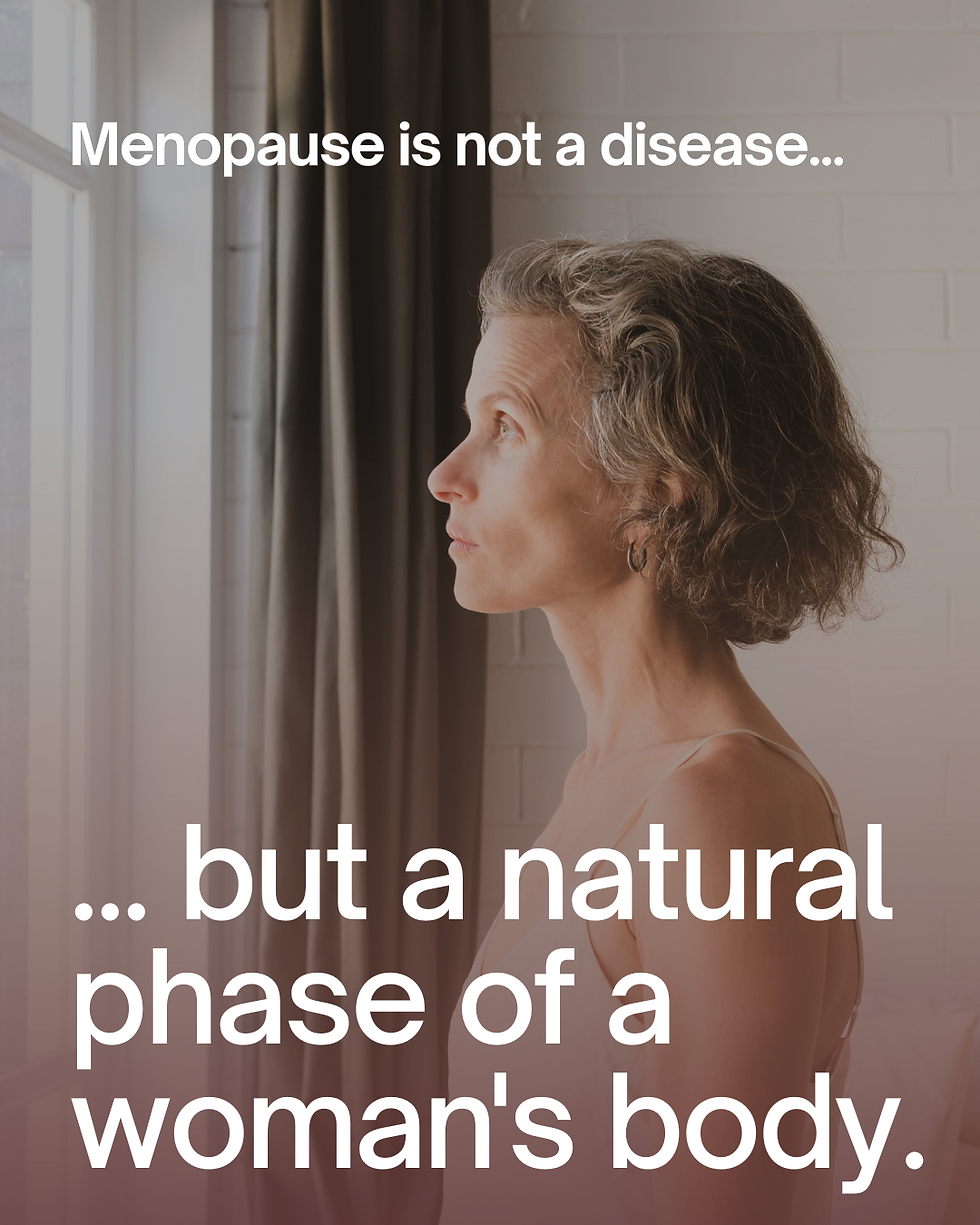Understanding Menopause: A Natural Life Transition
- D. Medina, MD
- Sep 5, 2025
- 2 min read

Menopause is a stage every woman will eventually experience, yet it is often misunderstood or overlooked in routine medical care. Understanding what menopause is and how it affects your health can help you feel more prepared and empowered during this important stage of life.
What Is Menopause?
Menopause is defined as the permanent end of menstrual periods. Doctors diagnose it after 12 consecutive months without a period, as long as there is not another medical reason for the change. This marks the natural decline of ovarian function and the transition from the reproductive years into the nonreproductive phase of life.
For most women, menopause occurs around age 50 to 51. While this timing is average, it can vary widely. If menopause happens before age 40, it is considered premature. Between ages 40 and 45, it is considered early. Menopause can also be brought on suddenly by surgery such as removal of the ovaries or certain medical treatments.
Why Hormones Matter
The hormonal shift that happens with menopause, mainly a drop in estrogen, has both short term and long term effects.
Common symptoms include:
Hot flashes and night sweats
Mood changes, fatigue, and sleep problems
Vaginal dryness or discomfort with intimacy
Urinary symptoms, such as urgency or infections
Beyond symptoms, menopause is linked to important long term health risks. Lower estrogen levels can contribute to bone loss, raising the risk for osteoporosis. They can also affect cholesterol and blood vessels, which may increase the risk of heart disease.
What About Perimenopause?
The years leading up to menopause are called perimenopause. During this time, periods may become irregular and hormones can fluctuate. Many women begin to notice hot flashes, mood swings, or other symptoms even though they are still having cycles. Perimenopause can last several years before full menopause occurs.
Why This Stage Matters
Menopause is more than the end of periods. It is a major milestone in a woman’s life. Recognizing it as a natural transition allows us to focus on protecting long term health and improving quality of life. Organizations such as the American Heart Association and the U S Preventive Services Task Force stress the importance of paying attention to menopause, since it can shape health for years to come.
Taking Care of Your Health
While menopause can feel overwhelming, you do not have to navigate it alone. Lifestyle strategies such as exercise, balanced nutrition, and stress management can make a difference. In some cases, hormone therapy or other medical treatments may also help manage symptoms safely and effectively.
At Luminous Health & Wellness, I provide evidence based, compassionate care for women in perimenopause and menopause. Together, we can create a personalized plan to help you feel your best and protect your long term health.
If you are ready to take the next step in your menopause care, schedule a visit today. Call us at 832-391-5300.




Comments